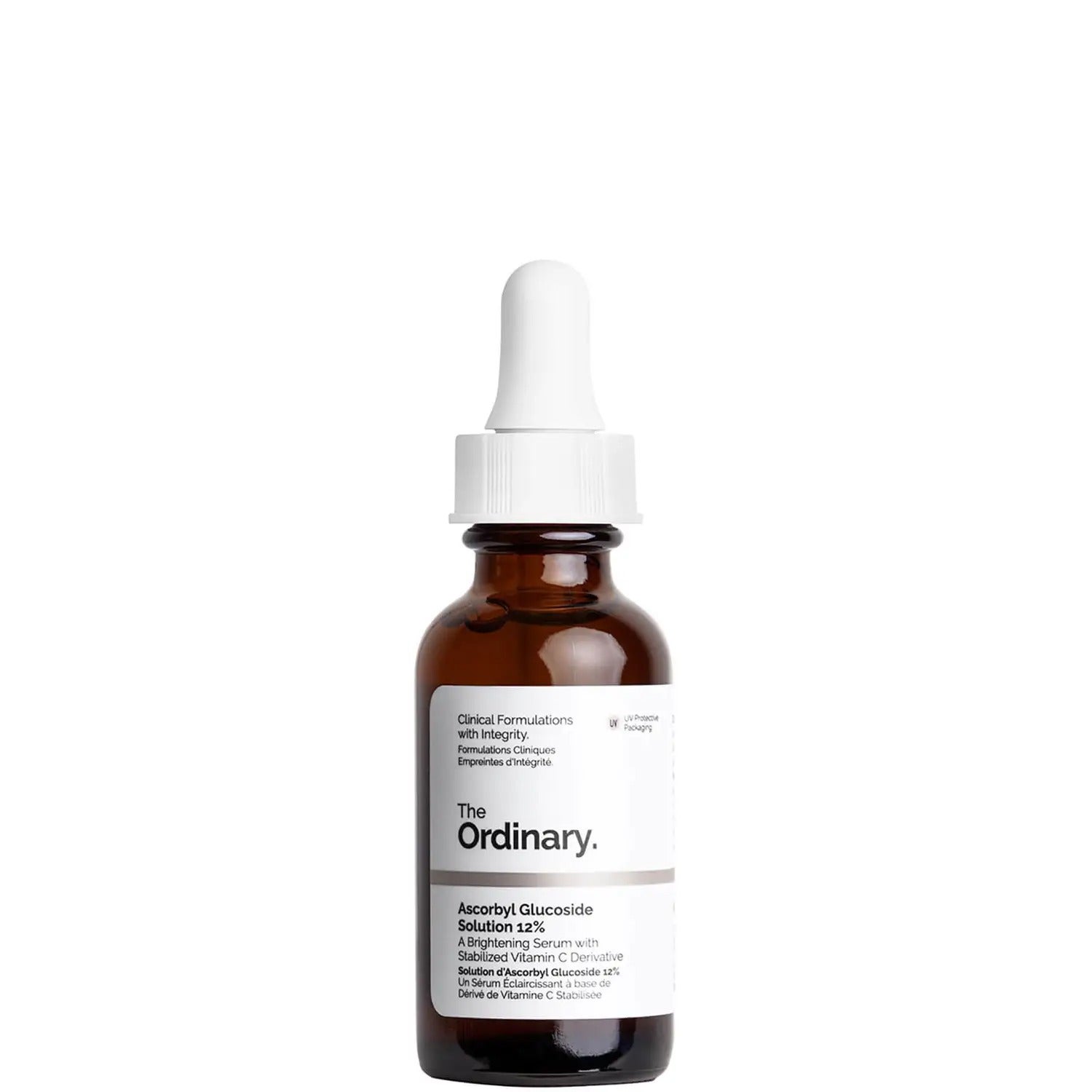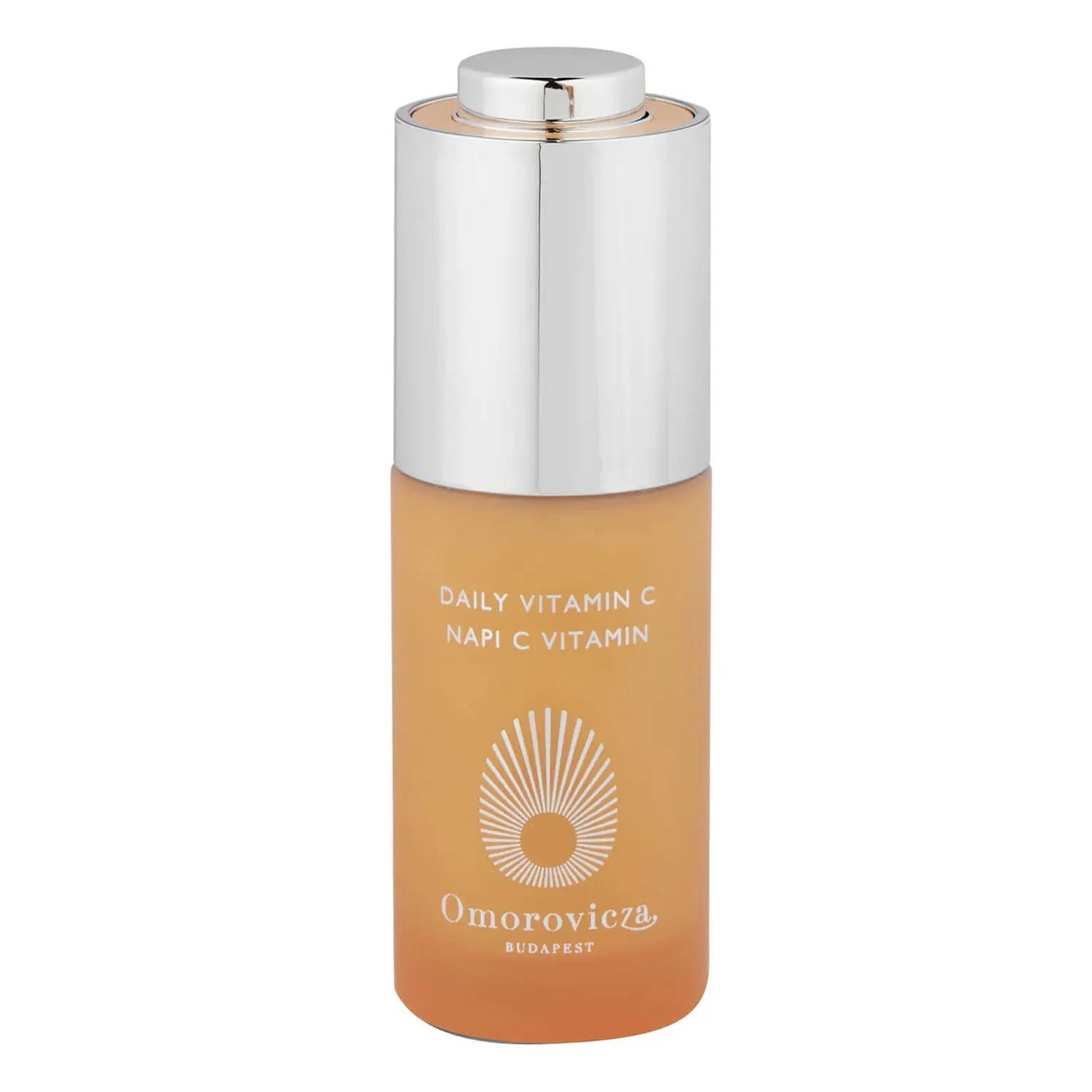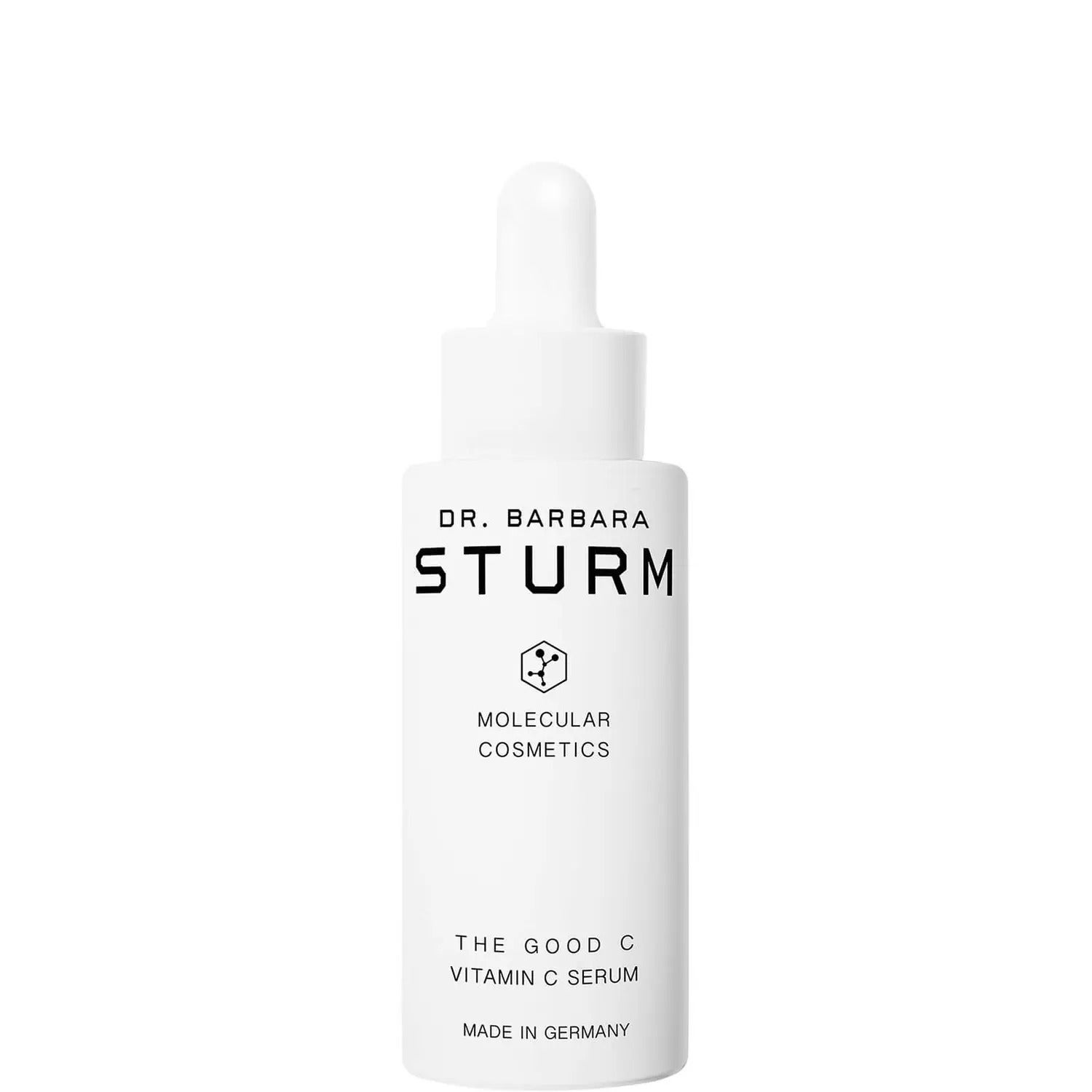This Is The Best Vitamin C Serum I’ve Tried & It’s Only £11
I have a love-hate relationship with vitamin C serums. Almost all skincare experts I've interviewed have recommended a daily dose of the stuff thanks to its great potential. It helps to fend off pollution (teamed with SPF it boosts the skin's resilience to damaging UV rays), tackles hyperpigmentation (which often appears as red or brown marks), makes dull-looking skin gleam and promotes new collagen to result in plump, smooth skin. But finding the right vitamin C product is no mean feat.
You see, not all vitamin C serums are created equal. A quick Google search serves up hundreds of alternatives with concentrations from 10% through to 15%. If you're into checking skincare lists, you'll know that there are a handful of different names for the ingredient, too. One of the most popular and effective versions of vitamin C, which you'll often find on skincare labels, is L-ascorbic acid. Facialist Jasmina Vico encourages her celebrity clients to look for this one in particular and if it works for you, that's great. But as glow-enhancing as vitamin C is, there are some downsides.
AdvertisementADVERTISEMENT
Just like exfoliating acids and retinol, vitamin C is an active ingredient, which means it has the potential to cause skin irritation. Some people might find that it stings on application, causing redness and eventually dry, sore skin. Speaking from personal experience, it's not a pleasant feeling with which to start the day (and it's probably best to shelve that product quickly if you experience sensitivity like this).
So what do you do on your quest for brighter skin? Well, you don't have to give up vitamin C entirely but rather choose a different version. Not long ago I paid a visit to GP and dermatology expert Dr Anita Sturnham, who pointed me in the direction of an ingredient called ascorbyl glucoside. Without schooling you on the chemistry, it's basically taken from vitamin C but is less potent than L-ascorbic acid. Dr Sturnham told me: "It's the only derivative of vitamin C which is converted into ascorbic acid in the skin, so you get all the ascorbic acid benefits without the reaction."
I was sold. Willing to try anything that could give me more radiant skin without the dreaded sting, I did some investigating. I wrote previously about my devotion to the £4.99 Aldi vitamin C serum but like most of Aldi's famous skincare, it doesn't stick around for long. Ascorbyl glucoside was my best bet. There are a few serums which contain the ingredient, like Dr. Barbara Sturm's The Good C Vitamin C Serum, £110, and Omorovicza's Daily Vitamin C, £99, but I settled on the budget option: The Ordinary's Ascorbyl Glucoside Solution 12%, £8.90 (£11 on Deciem's website).
AdvertisementADVERTISEMENT
I've been burned (almost literally) by vitamin C serums in the past so I was apprehensive to try this but I needn't have worried at all — it's now a firm fixture in my morning skincare routine after cleansing and before moisturiser and SPF. The formula is clear and on the thicker side for a serum but it absorbs easily without so much as a tingle. Having used it consistently every day for over a week, my skin is a lot better. It's hydrated (a must when the weather is still this cold) and any red skin staining left behind by breakouts seems to disappear so quickly. I know that it helps to ramp up the effects of my sunscreen, protecting my skin from UV and other environmental factors, while regular daily use will promote collagen production over time, ensuring my skin stays pillowy and smooth. It's not a coincidence that I've received a few compliments on my newfound glow.
@liyanawahidaa who is looking for vitamin C? ascorbyl glucoside might be your choice🥰❤️#theordinary #smallbusiness #smallbusinessmalaysia #aesthetic #skincare ♬ Coffee Breath - Sofia Mills
I know I'm not the only one to extol the virtues of ascorbyl glucoside. In terms of The Ordinary's products, it's relatively under the radar and hasn't shot to fame quite like the Glycolic Acid 7% Toning Solution, £6.80, or the Niacinamide 10% + Zinc 1%, £5, but it does have a secret following on TikTok and Redditors are talking about it, too.
So how exactly do you use it? Technically, vitamin C can be used in the morning or the evening but it makes sense to use it in the AM specifically, as your skin is more likely to come into contact with environmental aggressors like pollution and UV. To maximise the hydrating effect I treat my skin to a spritz of face mist and apply the serum while my skin is still damp. I follow with moisturiser if I'm staying indoors or SPF if I'm headed outside (yes, even when it's cloudy).
If you're doing fine with your current vitamin C serum and noticing good results, there's no need to switch things up. But if sensitivity is one of your skincare gripes and you're interested in trying something new, you might like to give this a go — before everyone else cottons on.
Refinery29's selection is purely editorial and independently chosen – we only feature items we love! As part of our business model we do work with affiliates; if you directly purchase something from a link on this article, we may earn a small amount of commission. Transparency is important to us at Refinery29, if you have any questions please reach out to us.
AdvertisementADVERTISEMENT









